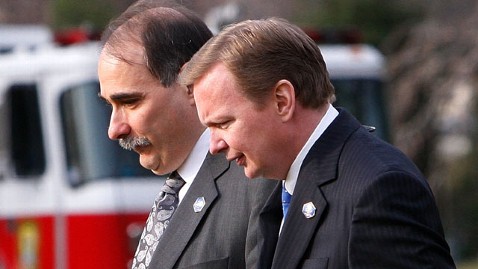Obama Campaign Strategists Expect Long GOP Primary, and Like It

President Obama's team of campaign strategists said today they expect a drawn out Republican primary that will play to Obama's advantage, ceding more time to craft a general election narrative largely unchallenged while ultimately producing a weakened GOP challenger in 2012.
"This is an unusual year, the most unpredictable Republican race I've seen in my lifetime," Obama's chief campaign strategist David Axelrod told reporters at a briefing in Washington.
"Whether it's [Mitt] Romney or [Newt] Gingrich, or if someone else were to surprise us, the debate is going to be largely the same because the economic theory on their side is largely the same," he said. "The longer this race goes, the more you're going to see these Republican candidates mortgage their general election campaigns to try and win the nomination."
The Obama team believes the duel between Gingrich and Romney, which could play out through next June, will force both potential Obama challengers to shift far more to the right than any of the Democratic candidates had to move during their lengthy primary campaign four years ago.
"There's this kind of reign of terror going on in the Republican Party where you're not allowed to step out of line, where you have to genuflect at the altar of Grover Norquist and Rush [Limbaugh] and the others," Axelrod said, indicating the "extreme" positions will hurt the party next fall.
The Democrats predict the former House speaker will dominate the Iowa caucuses and primaries in South Carolina and Florida, where he's leading in the polls, while Romney will surge in February in the primary states he carried in 2008. They also see Gingrich doing well in the mostly southern "Super Tuesday" states in March, forcing a continuing battle for delegates into May or June.
Meanwhile, Obama's campaign is expected to deploy "major field operations" in all the key battleground states early next year and prepare for aggressive, direct engagement with voters as soon as there's a clear GOP nominee, aides said. Campaign manager Jim Messina said Obama's grassroots organizing is already unmatched by any of the Republican candidates.
Obama volunteers have held more than 1 million conversations with potential voters, at least 90,000 one-on-one meetings about the campaign, and enlisted more than 1,000 young organizers to hit the road this fall.
"I think we have more staffers on the ground in Iowa than any of the other campaigns right now," Messina said. "We have infrastructure on the ground in all the key states. I don't think any of them [Republicans] do. And in the general election, that's going to be an advantage for us in turning people out."
As for the president's message, Axelrod said Obama will hue closely to the themes laid out in his speech in Osawatomie, Kan., last week.
While Obama will stress a "pivotal moment in our economy" and his plan for "not just recovery but economic security," the campaign will underscore contrasts with the Republican vision, which Axelrod called "social Darwinism, trickle-down economics," that they say led to the recession.
When Mitt Romney says, "'I understand the real economy,' I think the American people understand that economy as well. And that aspect of the economy is one that they don't appreciate and they don't want to become the model for the future," Axelrod said. "When he says, 'I can fix the economy,' their question is going to be for who? Who are you fixing the economy for?"
The president's campaign team said the extended primary battle could also soften the blow from pro-Republican "super PACs" that might deplete some of their war chests during the in-fighting, before the general election.
"We're not going to be able to combat it dollar for dollar," Axelrod said. "We're going to combat it person to person, door to door. And a lot of it [money] may be deployed before they get to us."